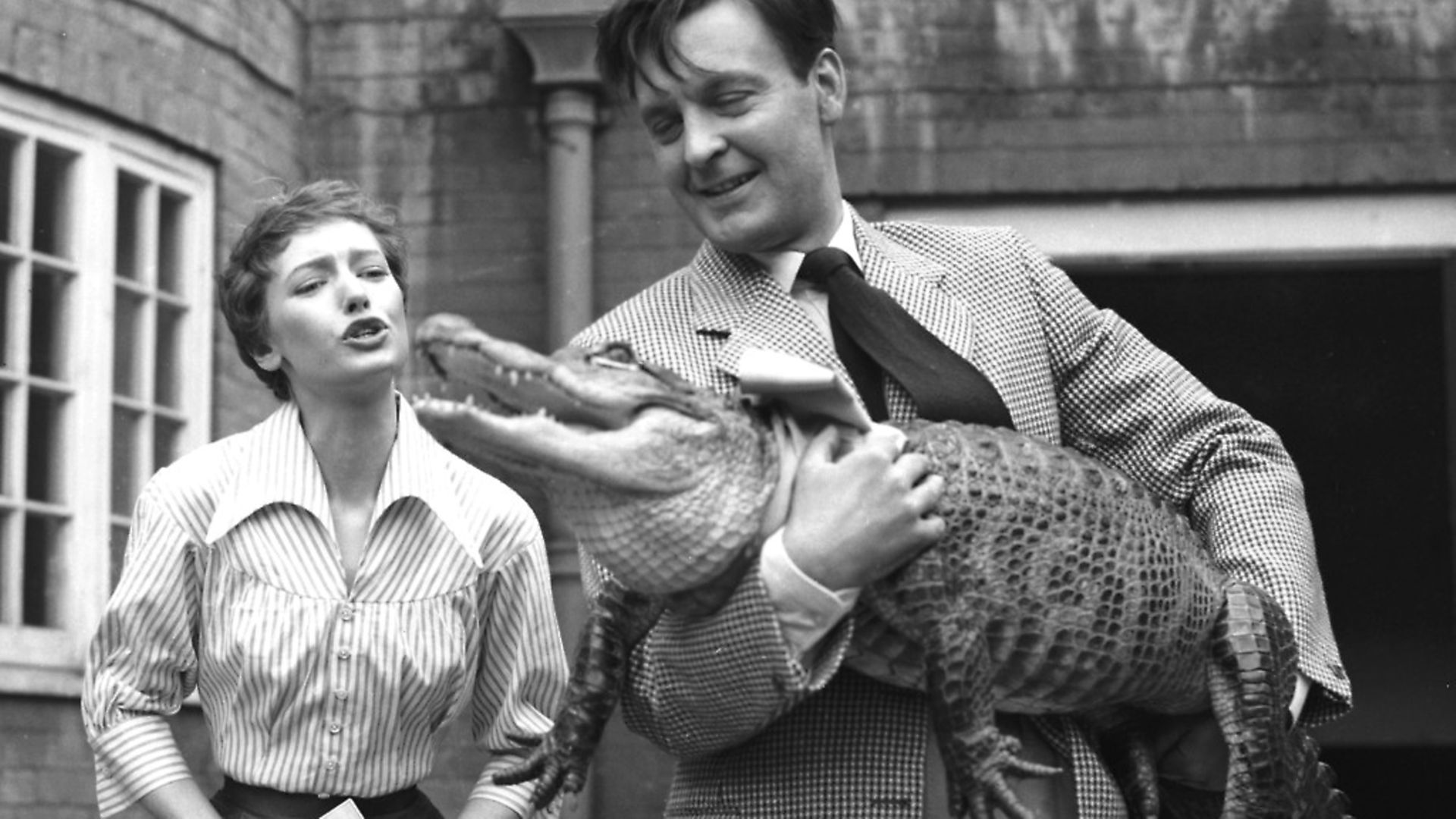
TIM WALKER on a man who never lost that childlike need to please and to make people happy.
I first met Donald Sinden in the mid-1980s when I showed up too early at his home in Golders Green in north London. He came to the door in his dressing gown and slippers and his hair all over the place and told me he wasn’t quite ready. It was nearly midday, but actors keep different hours from the rest of us, and so I took a walk around the block and came back at the appointed time.
Sinden had in the meantime got on his public face, which meant he was booted, suited and brilliantined. It was an old-fashioned look even then and there was something about his whole demeanour that seemed to invite ridicule. The satirical puppet show Spitting Image was at the time portraying him as an incurable old ham who was desperate for a knighthood.
Within his profession, he was often seen as an anachronism. Regional accents, five o’clock shadow and naturalism had become the norm for actors since the kitchen sink dramas of the 1960s, but Sinden was having none of it.
He was still defiantly making a point of not only looking like he had just walked off the set of one of his old Rank films, like Doctor in the House, but also enunciating every syllable perfectly and poshly.
He looked at me uncomprehendingly when I broached these subjects. He insisted he’d never thought for a moment about a knighthood, and, as for the new style of acting, he happened to feel ‘drawing rooms were eminently more comfortable to sit in than kitchen sinks’. He had been trained at the Webber Douglas Academy of Dramatic Art, and he was damned if, as a secondary schoolboy from a humble home in Plymouth, he was going to unlearn what they’d taught him.
Sinden’s failure to move with the times could sometimes, of course, be embarrassing. In 1979, he was one of the last actors to be willing to ‘black up’ to play Othello, but he saw nothing wrong about it because Laurence Olivier had done the very same thing. He didn’t get that society had moved on since 1964.
He could also be a professional snob. Of his time making the Hollywood adventure film Mogambo, he said its star Clark Gable was no more than ‘a lorry driver who’d got it into his head he could act’. He added that, while filming on location in equatorial Africa, he’d had the misfortune to have a tent beside Gable’s and was kept awake most nights as he set about bedding virtually the entire female cast.
If I lampooned Sinden in the piece I wrote back then he was lampooning himself every bit as much in television sitcoms such as Two’s Company and Never the Twain. In the former, he was sent up by an irreverent American writer played by Elaine Stritch, and, in the latter, Windsor Davies’ rough-and-ready antique dealer.
The fates decreed that was not to be my last encounter with Sinden, and in the ensuing decades, I found myself interviewing him or meeting him socially again and again. Whether he had actually forgotten or chose to forget my first piece, I will never know, but his good humour and remorseless cheerfulness eventually began to wear me down.
He finally got his knighthood in 1997 and his profession came in time to appreciate him. I well remember the warmth in the applause he received for his last stage performance as an ageing opera star in a revival of Ronald Harwood’s play Quartet in 1999.
Ultimately, Sinden couldn’t help being himself. When I telephoned him for a comment about the death of Elaine Stritch, his first reaction was ‘rejoice, rejoice’. Stritch had made his life hell during the filming of Two’s Company. He was for a time doubling up in a West End stage production in the evenings and found the endless re-takes necessitated by her heavy drinking physically exhausting. After explaining all of that, he remembered his public persona and said that, on second thoughts, could I please just quote him as saying he was ‘very sad’ she’d died.
The last time I saw Sinden it was in a restaurant when, not long before his death, he did a spot of table-hopping, and, for a few happy moments, he joined mine. He cracked a series of jokes and I remember looking at him and wondering why I’d expended so much time trying to analyse such a straightforward man. Even when he was almost 90, he never lost that childlike need to please and to make people happy.











